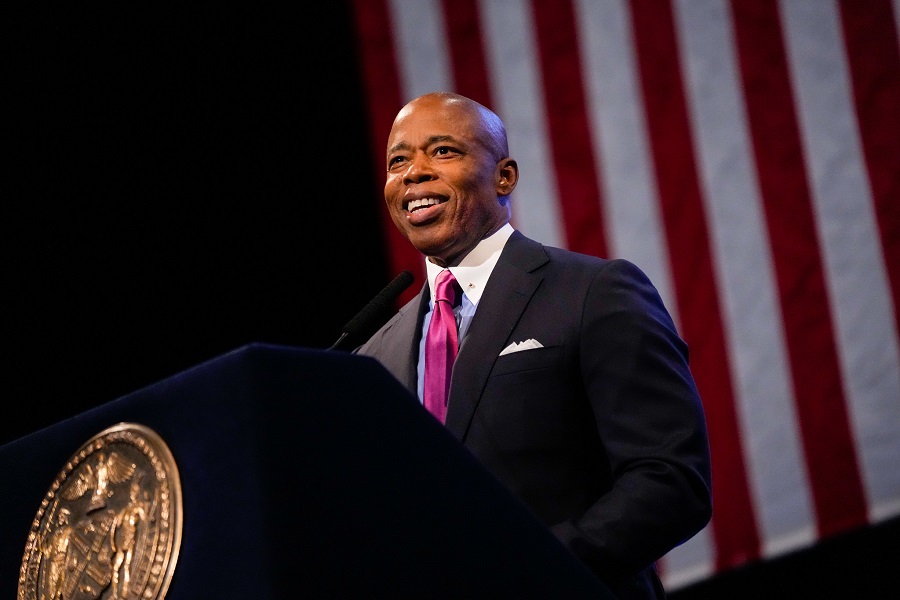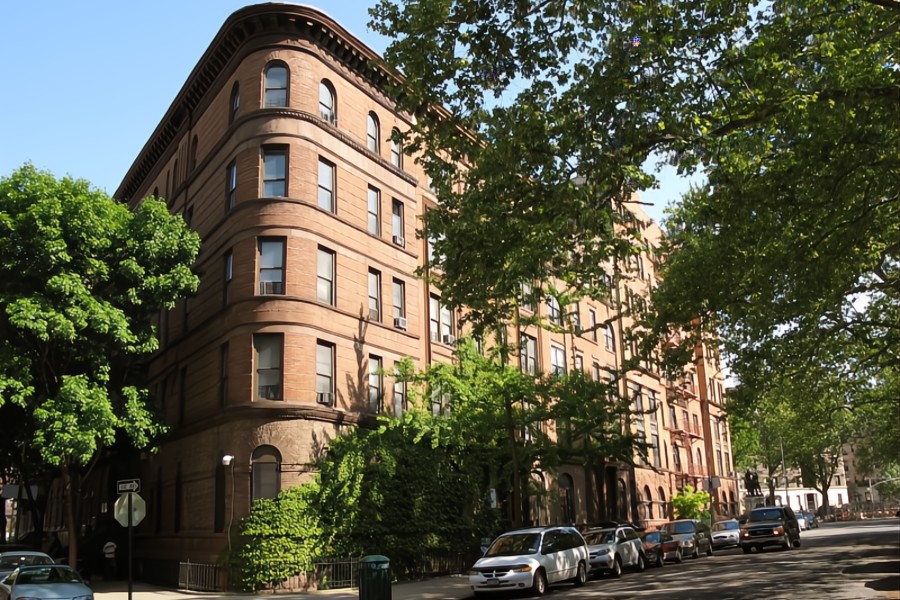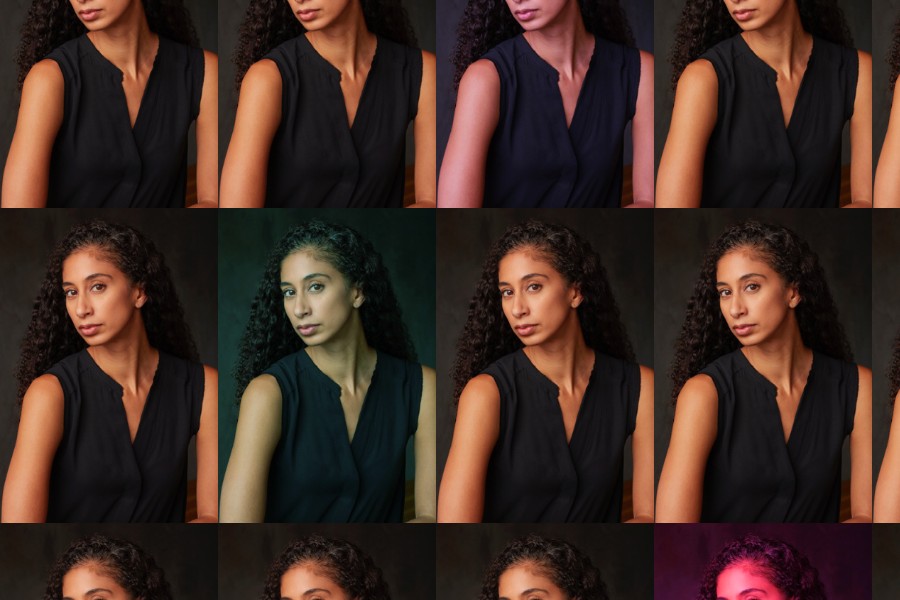 Mayor de Blasio today signed 12 pieces of legislation on which he previously held a hearing – Intros. 1290-A, 1295-A, 1296-A and 1297-A, in relation to the Percent for Art program…Intro. 865-B, in relation to reporting certain data regarding the Cultural Institutions Group; Intro. 1276-B, in relation to requiring the art commission to conduct an annual report; Intros. 570-A, 860-A and 861-A, in relation to commuter vans; Intro. 1052-A, in relation to agency disposal of electronics; Intro. 1281-A, in relation to the evaluation of economic development tax expenditures; and Intro. 1371, in relation to an extension of the DUMBO Business Improvement District. The Mayor also held hearings for and signed nine other pieces of legislation– Intro. 436-A, in relation to allowing supermarkets and some retail stores to correct first-time price-labeling violations before having to pay civil penalties; Intro. 1024-A, in relation to the dissemination of senior citizen rent increase exemption information; Intros. 1164-A, 1166-A, 1167-A, 1168-A and 1171-A, in relation to three quarters housing; Intro. 1294-A, in relation to requiring the fire department to report on fire-related deaths; and Intro. 1309, in relation to the extension of increases to the maximum qualifying income levels for the City’s Rent Freeze Program, SCRIE and DRIE.
Mayor de Blasio today signed 12 pieces of legislation on which he previously held a hearing – Intros. 1290-A, 1295-A, 1296-A and 1297-A, in relation to the Percent for Art program…Intro. 865-B, in relation to reporting certain data regarding the Cultural Institutions Group; Intro. 1276-B, in relation to requiring the art commission to conduct an annual report; Intros. 570-A, 860-A and 861-A, in relation to commuter vans; Intro. 1052-A, in relation to agency disposal of electronics; Intro. 1281-A, in relation to the evaluation of economic development tax expenditures; and Intro. 1371, in relation to an extension of the DUMBO Business Improvement District. The Mayor also held hearings for and signed nine other pieces of legislation– Intro. 436-A, in relation to allowing supermarkets and some retail stores to correct first-time price-labeling violations before having to pay civil penalties; Intro. 1024-A, in relation to the dissemination of senior citizen rent increase exemption information; Intros. 1164-A, 1166-A, 1167-A, 1168-A and 1171-A, in relation to three quarters housing; Intro. 1294-A, in relation to requiring the fire department to report on fire-related deaths; and Intro. 1309, in relation to the extension of increases to the maximum qualifying income levels for the City’s Rent Freeze Program, SCRIE and DRIE.
“Public art plays a crucial role in capturing the extraordinary energy and diversity of this city,” said Mayor Bill de Blasio. “The improvement of the Percent for Art program strengthens the City’s ability to invest in public works of art and the local artists who create it. This package of legislation is just one of many steps we are taking to ensure the growth and display of New York City’s artistic spirit. I would like to thank the sponsors of these bills, Council Member Laurie Cumbo and Majority Leader Jimmy Van Bramer. I would also like to thank Council Speaker Melissa Mark-Viverito and the rest of the City Council for passing these bills.”
“New York City is not only home to great art – it is home to great artists,” said Council Speaker Melissa Mark-Viverito.
“New York City is not only home to great art – it is home to great artists,” said Council Speaker Melissa Mark-Viverito. “Through implementing enhanced funding provisions and establishing detailed reporting requirements, we ensure that New Yorkers have continued access to information about our citywide public art programs and to the opportunities that allow them to participate in those same programs themselves. I commend the members of the City Council who worked so diligently on these initiatives, and I thank Mayor de Blasio for signing them into law today.”
The first bill, Intro. 1296-A, brings the Percent for Art program into the 21st century, economically speaking. This bill increases the amount the City of New York can spend on public art. The bill provides that one percent of the first $50 million appropriated for public-facing capital projects must be allocated for public art, replacing the existing rule that only one percent of the first $20 million would be allocated for public works of art. In his remarks, the Mayor thanked the bill’s sponsors, Council Member Laurie Cumbo and Majority Leader Jimmy Van Bramer.
The second bill, Intro. 1295-A, requires that the Department of Cultural Affairs publish demographic information on its website about the artists whose work has been commissioned by the Percent for Art program, in addition to the information currently published about each commission. This bill will help to show the breadth and diversity of the works and artists commissioned. In his remarks, the Mayor thanked the bill’s sponsors, Council Member Laurie Cumbo and Majority Leader Jimmy Van Bramer.
The third bill, Intro. 1290-A, clarifies who must serve on the advisory panels that recommend art for the Percent for Art program. This bill will help to ensure that diverse groups of voices decide what art best represents their communities. In his remarks, the Mayor thanked the bill’s sponsors, Council Member Laurie Cumbo and Majority Leader Jimmy Van Bramer.
The fourth bill, Intro. 1297-A, requires DCLA to do citywide outreach to educate the public about how to submit artwork to the Percent for Art program. This bill will help to ensure that all those who have a stake in public art will be able to have a say in public art. In his remarks, the Mayor thanked the bill’s sponsors, Council Members Laurie Cumbo and Jimmy Van Bramer.
The fifth bill, Intro. 865-B, requires DCLA to report annually on educational partnerships, programs, and visitors to City-owned cultural institutions. This bill will help to highlight the meaningful role that cultural institutions play in the City’s cultural landscape. In his remarks, the Mayor thanked the bill’s sponsor, Majority Leader Jimmy Van Bramer.
“Today the largest package of bills ever in the history of the Committee on Cultural Affairs, along with major reforms to the Percent for Art program, became law. I’m extremely proud of my team and my Council colleagues for working with me to pass this meaningful legislation. These bills will bring more transparency and accountability to the public art process and strengthen the programs that help make our city the cultural capital of the world,” said Majority Leader Jimmy Van Bramer, Chair of Committee on Cultural Affairs Committee. “These bills will increase community input in the Percent for Art program by requiring community members to sit on Percent for Art panels, requiring the DCLA to collect data on who receives commissions, and mandating that outreach to artists is conducted in multiple languages. They will also strengthen Percent for Art by increasing the amount of money that can be spent on these important public projects. This package also contains legislation requiring annual reports from the Arts Commission and the Cultural Institutions groups, bringing more transparency to the institutions that literally shape the face of our city. New York City is better with more public art, more ambitious public art, and public art in every neighborhood. That is what this package will accomplish.”
“The 35th Council District, which I proudly represent, is home to artists of all backgrounds whose inspirational work continues to explore different ideas, perspectives, and societal issues. My legislation – Intros. 1295, 1296, and 1297 – is an opportunity to diversify participation within the Percent for Art program and expand our City’s investment in artists who can transform public spaces into canvases that will showcase their creativity and beautify our neighborhoods. This unprecedented funding increase in the Program’s 35-year history is momentous and an incredible victory for our city. I want to thank Mayor Bill de Blasio, Speaker Melissa Mark-Viverito, Cultural Affairs Committee Chair Jimmy Van Bramer and Cultural Affairs Commissioner Tom Finkelpearl for their continued advocacy and support towards the cultural enrichment of all New Yorkers,” said Council Member Laurie A. Cumbo, Chair of the Committee on Women’s Issues.
The sixth bill, Intro. 570-A, reduces regulatory obstacles for legitimate commuter van operators. This bill makes it easier for commuter van operators to obtain and renew a license. In his remarks, the Mayor thanked Council Member Jumaane Williams.
The seventh bill, Intro. 860-A, requires that the Taxi and Limousine Commission prepare an annual review and report of the City’s commuter van industry and make recommendations for its improvement. In his remarks, the Mayor thanked Council Member I. Daneek Miller.
The eighth bill, Intro. 861-A, increases penalties for operating an unlicensed commuter van and establishes penalties related to operating a commuter van. In his remarks, the Mayor thanked Council Member I. Daneek Miller.
“Commuter vans are an increasingly important and affordable way for many New Yorkers to get where they need to be,” said Taxi and Limousine Chair Meera Joshi. “We appreciate the work of Council Members Miller and Williams in providing these tools to increase safety, and we look forward to continuing to work together to support the licensed commuter van industry in ways that will further enhance their value to passengers and industry members alike.”
“As we work to ensure disconnected communities have the transportation options they desperately need, we must also be sure these options are safe and well regulated,” said Council Member Ydanis Rodriguez…
“As we work to ensure disconnected communities have the transportation options they desperately need, we must also be sure these options are safe and well regulated,” said Council Member Ydanis Rodriguez, Chair of the Committee on Transportation. “Thanks to legislation from Council Members Miller and Williams, we’re taking this approach to the dollar van industry, which has long served communities in central Brooklyn and southeast Queens with few transit options. I want to thank the Mayor for signing these bills, aimed at ensuring unlicensed drivers are off the streets, but also allowing for fewer burdens on operators that have shown they provide quality service to these communities.”
“Since I can remember commuter ‘dollar’ vans have been a part of everyday life for residents of Southeast Queens. These businesses try to provide a service that the MTA is not, and because they were poorly regulated, it has created an unsafe environment for commuters and drivers alike” said Council Member I. Daneek Miller. “After much advocacy, I have been pleased to see increased enforcement on Parsons Boulevard and Archer Avenue by the 103rd Police Precinct and Taxi and Limousine Commission, and the bills being signed into law today will support those efforts by deterring van drivers from breaking the law while we develop ways we can make the industry more efficient. I would like to thank Mayor Bill de Blasio, Speaker Melissa Mark-Viverito, Council Member Jumaane Williams, and my colleagues in the Council for supporting these bills.”
“Commuter vans are a major source for transportation in my district, and in many other communities across the city,” said Council Member Jumaane D. Williams. “They fill the gap in transportation starved areas. Unfortunately, commuter drivers often get painted with a broad brush, and are accused of infractions that legal drivers are not committing. These bills are about making sure people have the legal opportunity to operate commuter vans, while also stepping up enforcement, and ensuring passenger safety.”
The ninth bill, Intro. 1052-A, requires that City agencies erase all data and information when disposing of electronics. This bill underscores the City of New York’s commitment to protecting New Yorkers’ personal information and helps to safeguard the privacy of the City’s people while preserving the integrity of electronic infrastructure. In his remarks, the Mayor thanked the bill’s sponsor, Council Member James Vacca.
“With ever increasing threats to our personal information, it is critically important we legislate procedures to insure that data is properly secured,” said Council Member James Vacca, Chair of the Committee on Technology. “Before this law, though there was a robust data security policy in place, there were no codified requirements that City agencies wipe the data that exists on office supplies hardware. We want to ensure that disposed of hard drives are not a security risk, and that personal information or sensitive data cannot be compromised from these devices. This law will codify and expand the current policy to require all office devices that store data to be properly wiped before disposal or agency transfer, which will greatly improve the information security of New Yorkers. I thank Mayor de Blasio for signing this important piece of legislation.”
The tenth bill, Intro. 1276-B, requires the Public Design Commission to report annually on the previous year’s work. This bill will help make the City’s public design review process more transparent. In his remarks, the Mayor thanked the bill’s sponsor, Majority Leader Jimmy Van Bramer.
The eleventh bill, Intro. 1281-A, relates to the evaluation of economic development tax expenditures. In his remarks, the Mayor thanked the bill’s sponsor, Council Speaker Melissa Mark-Viverito.
“The City provides $2.8 billion in economic development tax expenditures to encourage investment in commercial real estate, create jobs and promote investment in equipment and training; however, we have been limited in our ability to measure how well these tax breaks have fared at achieving their goal. This bill will improve the Council’s oversight of these programs, help lawmakers better understand the impacts of these tax breaks and help guarantee that the public is getting the best bang for its buck. This legislation reflects the work of the Task Force on Economic Development Tax Expenditures which for months worked to develop a standardized process of evaluation. I am proud of the Task Force’s work in creating a process that other municipalities can now model,” said Council Member Julissa Ferreras-Copeland, Chair of the Committee on Finance.
The twelfth bill, Intro. 1371, allows for an extension of the DUMBO Business Improvement District. In his remarks, the Mayor thanked the bill’s sponsor, Council Member Julissa Ferreras-Copeland, Chair of the Committee on Finance.
The thirteenth bill, Intro. 436-A, allows supermarkets and some retail stores to correct first-time price-labeling violations before having to pay civil penalties. In his remarks, the Mayor thanked the bill’s sponsor, Council Member Rafael Espinal.
“There are over 5,717 supermarket and grocery stores across the five boroughs, which employ 60,000 people and provide consumers with their essential household supplies. I am proud that today we made it possible for these businesses to cure item pricing violations before receiving a burdensome fine. Often these fines have been for minor issues like a single item missing a price tag. Owners were being fined hundreds of dollars on a regular basis because of a simple oversight, making it harder to do business in this city. This law will not only reduce the burden on businesses, but it will also function to actually educate store owners and employees on proper practices so that the intent and spirit of the law can truly be carried out,” said Council Member Rafael Espinal.
The fourteenth bill, Intro. 1024-A, requires relevant agencies to distribute information to potentially eligible clients regarding enrollment for Senior Citizen Rent Increase Exemption (SCRIE). In his remarks, the Mayor thanked the bill’s sponsor, Council Member Fernando Cabrera.
The fifteenth bill, Intro. 1164-A, amends the administrative code of New York City in relation to information regarding unlawful evictions. In his remarks, the Mayor thanked the bill’s sponsor, Council Member Corey Johnson.
The sixteenth bill, Intro. 1166-A, requires quarterly reports on violations issued to three-quarter housing. In his remarks, the Mayor thanked the bill’s sponsor, Council Member Donovan Richards.
The seventeenth bill, Intro. 1167-A, amends the administrative code in relation to posting of a vacate order, re-occupancy of vacated dwellings, and the provision of relocation services. In his remarks, the Mayor thanked the bill’s sponsor, Council Member Ritchie Torres.
“The City’s on-going affordable housing crisis and limited housing options has contributed to the existence of three-quarter houses that take advantage of extremely vulnerable individuals with nowhere to go. The enactment of this package into law will protect tenants from being taken advantage of by abusive landlords who want to make a profit off the Medicaid system and government resources. The bills I proudly sponsored will prohibit landlords from using medical treatment status as a way to discriminate against tenants, and will eliminate time limits for a person to apply for relocation services when a vacate order is in effect for the location where the person lives. These newly-enacted laws will confront the two major problems faced by three-quarter houses’ residents,” said Council Member Ritchie Torres.
The eighteenth bill, Intro. 1168-A, relates to improperly conditioning of residential occupancy on medical treatment. In his remarks, the Mayor thanked the bill’s sponsor, Council Member Ritchie Torres.
The nineteenth bill, Intro. 1171-A, relates to verification of occupancy for relocation services. In his remarks, the Mayor thanked the bill’s sponsor, Council Member Jumaane Williams.
“The point of this bill is to better protect those who live in three-quarter houses against abusive landlords who are looking to profit off of their vulnerability and moments of distress. The most troubling part in all of this is that because of the City’s affordable housing crisis, unscrupulous landlords have the opportunity to take advantage of people who cannot afford to go anywhere else. My bill expands identification documents needed for tenants to apply for relocation services. These documents include a lease, government ID, and a statement from a good-actor landlord or nonprofit. This adds certainty and trust to the process for tenants and prospective tenants. My hope is these bills go a long way to remedying this problem and disrupting this unregulated and unethical practice,” said Council Member Jumaane Williams.
The twentieth bill, Intro. 1294-A, requires that the Fire Department reports on the use and type of smoke detectors and smoke alarms in fire-related deaths. In his remarks, the Mayor thanked the bill’s sponsor, Council Member Elizabeth Crowley.
The twenty-first bill, Intro. 1309, extends increases to income eligibility limits for the City’s Rent Freeze Program, SCRIE and DRIE. In his remarks, the Mayor thanked the bill’s sponsor, Council Member Margaret Chin.
“With an affordability crisis creating unparalleled challenges for our City, we must do everything we can to ensure that seniors and disabled New Yorkers are able to stay in the neighborhoods they helped build,” saidCouncil Member Margaret S. Chin. “Intro. 1309 will codify existing extensions for both Senior Citizen Rent Increase Exemption (SCRIE) and Disability Rent Increase Exemption (DRIE) programs to eligible New Yorkers who earn between $29,000 and $50,000. I thank Mayor de Blasio, Speaker Mark-Viverito and my Council colleagues for their support in the fight to keep our most vulnerable residents in their homes.”
Photo credit: Mayor Bill de Blasio and drawing of James Baldwin by Danny Tisdale.
Become a Harlem Insider!
By submitting this form, you are consenting to receive marketing emails from: . You can revoke your consent to receive emails at any time by using the SafeUnsubscribe® link, found at the bottom of every email. Emails are serviced by Constant Contact








